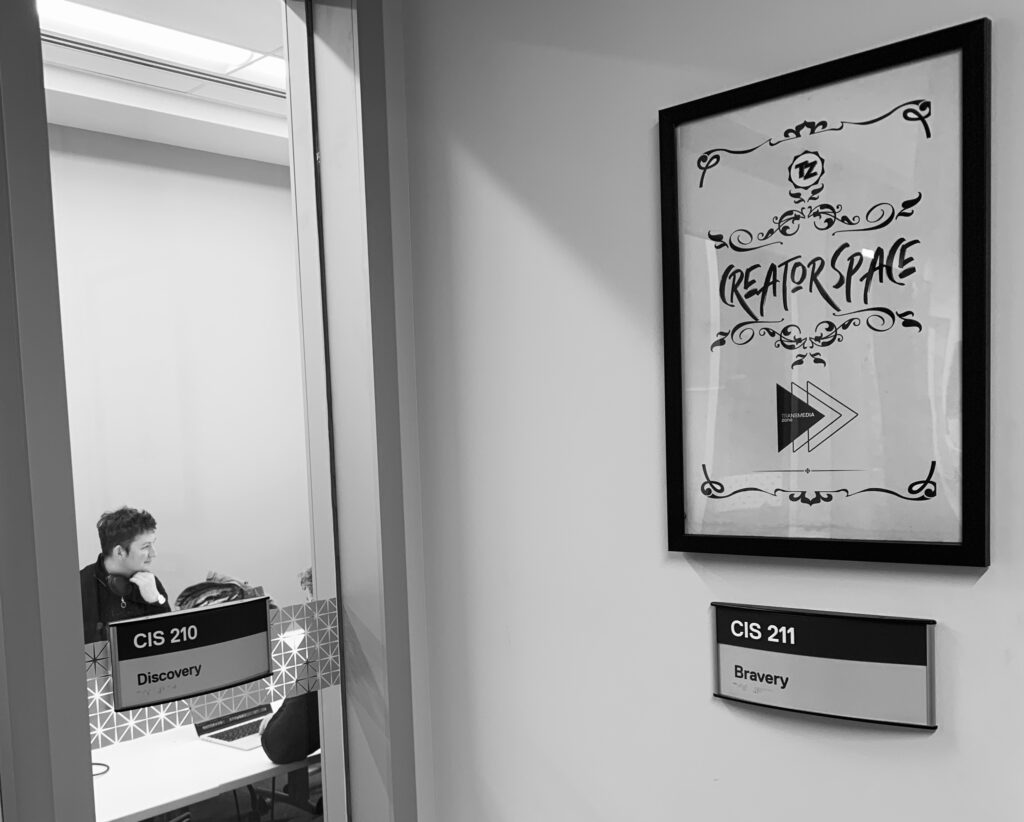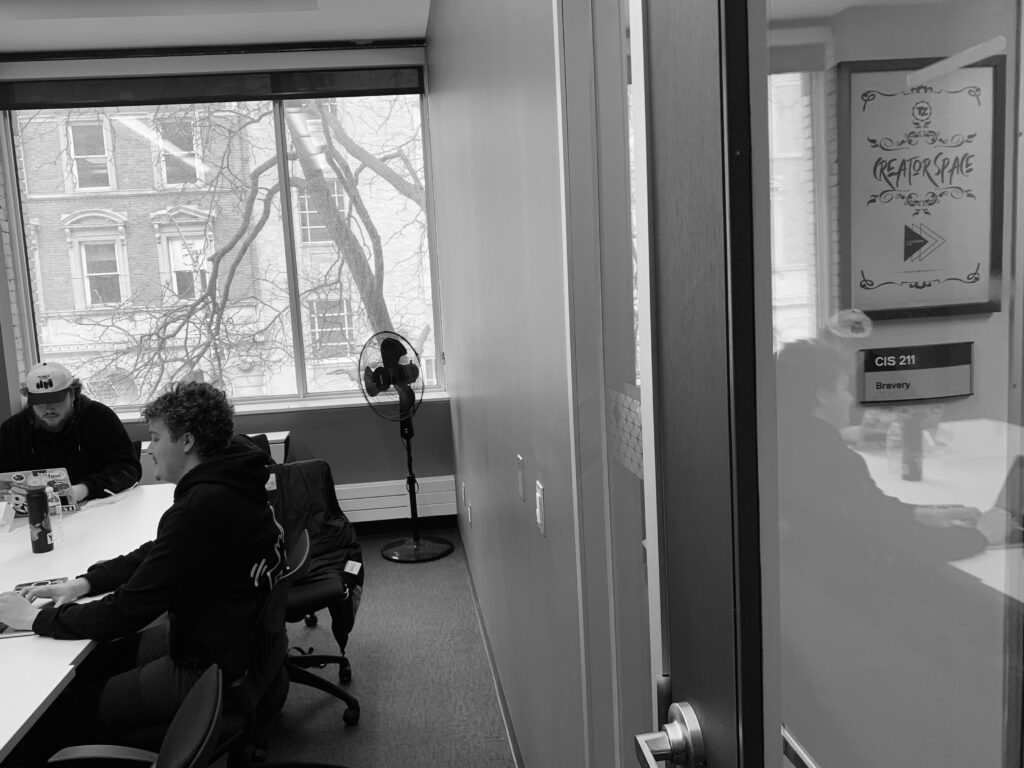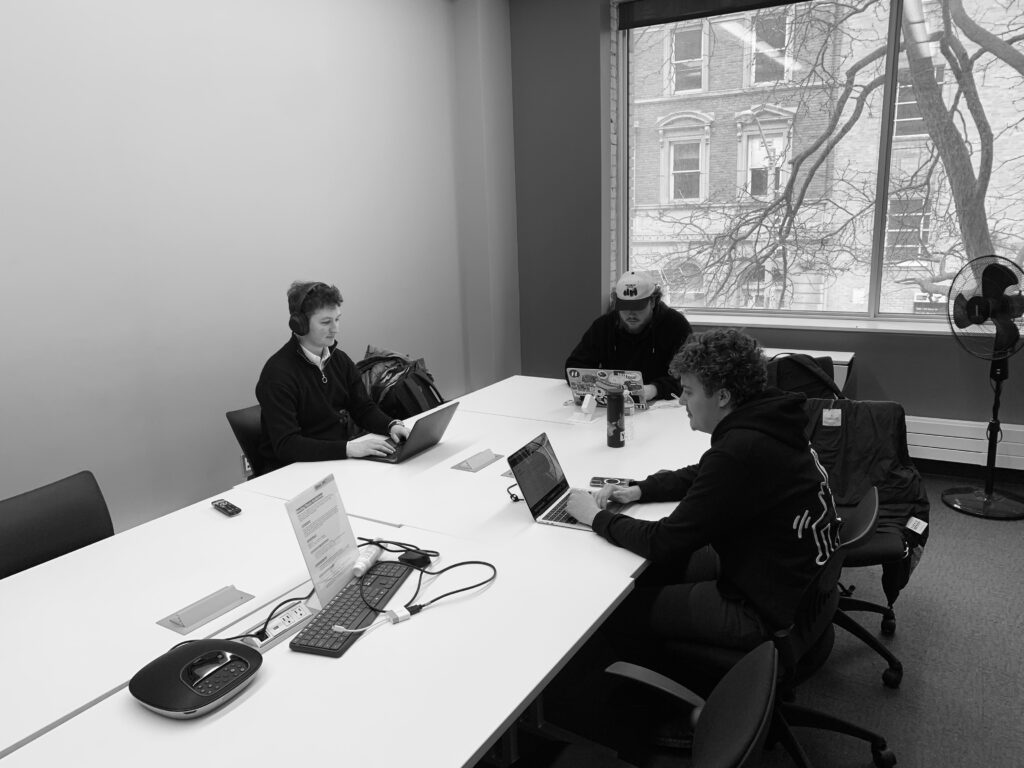By Joëlle A Staropoli
In 2020, at the height of the COVID-19 pandemic, three friends sat nervously in a cramped room at Pitman Hall Residence at Toronto Metropolitan University, ready to pack up their lives and move back home. Dreams of making it big in the production world were quickly crushed by the looming threat of the global pandemic.
But from the ashes rose Ten Four Pictures, a successful video production company.
In the beginning Josh Buxton, Josh Willick and award-winning filmmaker Philip LeMoyne produced videos for on-campus practicums and other personal passion projects. Willick and LeMoyne had always shared a passion for film and had spent countless hours honing their skills behind the camera. They knew they had the talent to make it in the industry. But they also knew it wouldn’t be easy. Despite the challenges posed by the pandemic, it was Buxton, with a business background, who pushed the others to take a chance and start their own company.
Gaining traction quickly, Ten Four Pictures’ professionalism, diligence and understanding of both their clients and their audiences allowed them to work with companies like Rebel Toronto, a night club in Toronto, and R&B artist LIZA, whose music video was featured in Times Square, New York City.
The company specializes in video production for advertisements and music videos, but the team has also worked on short and feature films throughout Toronto
Buxton says the name comes from when they were first roommates. “We used to throw a lot of parties, and it got to the point people were remembering the number of our room, 1031,” he said. “So, we took the 1031 and condensed it into 10 and 3+1.”
“We were just doing this for fun. It was actually Buxton that came to us and said he had a way to monetize this,” said Willick.
What had started out as a fun passion project and a good way to meet like-minded classmates was put on hold in 2020 due to the pandemic.
The extra free time during the pandemic gave the trio the ability to focus on turning old coworkers and classmates into contacts that helped them kick start their company and their careers.
“We joked a lot about it being a really good time to start the company during the pandemic, but turns out, it was. It was one of the few industries that were allowed to operate at the time,” said LeMoyne.
“The pandemic helped us fully concentrate on Ten Four with no distractions,” Willick added.
In 2020, during the second stage of Ontario’s COVID-19 provincial reopening, film and television production was allowed to resume in Ontario. This gave Ten Four Pictures an opportunity to generate revenue.
“The hardest part at the beginning was having no resources and still trying to bring your dreams and visions to life,” LeMoyne said.
The founders had to find different ways to purchase all that they needed.
“A lot of people were strapped for cash, so we were able to get a lot of second-hand film gear for reduced prices,” said LeMoyne. “We want to be able to use the same gear on a $1,000 music video as a $200,000 advertisement. So, it made sense to use the same tools in a different way that benefits each individual project and the client’s budget.”
Their entire personal and life savings were invested into the company to buy all their gear and create the business blueprint of what Ten Four Pictures is today.
During an economic recession, it’s important to be flexible, a trait Ten Four Productions has demonstrated, and attributes to being born in the pandemic.
According to Investopedia, it is estimated that about 20 per cent of Canadian start-ups fail within their first year. This percentage increases to a 60 per cent failure rate during the first three years — these numbers increased during the pandemic.
Ten Four Pictures is a start up that has positioned itself to maximize its chances to be successful by purcharing its own equipment. This allows them to provide a more accurate estimate and stay within a client’s price range without being subjected to fluctuating industry prices.
“It boils down to having everything fully in-house and being a start-to-finish process where everything is completed by the company. We are able to deliver what people need when they’re looking for something that’s really high quality, but maybe they don’t have the budget or resources to go to a traditional producer that charges for a phone call,” Buxton said.
“We made that initial investment because we didn’t want to be going to rental houses on every single job, sinking all potential profit from small client budgets into a rental bill,” added LeMoyne.
According to their website, this initial investment saves approximately 45 per cent of costs compared to other production companies.
“We’ve always had a less is more mentality,” Willick said. “It’s less about the actual tool you have and more about how you use it. I think that’s an approach that we’ve had on every single production, and it has ended up being advantageous for us. Results matter more than method.”
When discussing if there were any plans to expand the company to other provinces or countries, the founders said they didn’t have any immediate plans.
“We hope to have roots in Toronto but branches internationally,” Willick said.
“It’s a lot easier to rise to the top in a small but growing environment than it is to do so in a really high opportunity space, like the United States. So, if you can rise to the top in a space like Toronto then you can get recognition in other areas and opportunities from other bigger places will come,” Buxton said.









